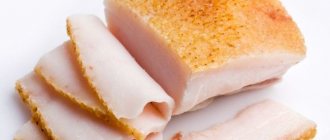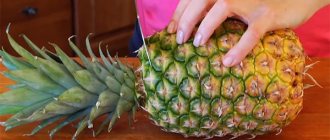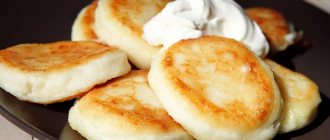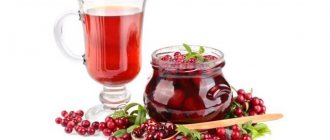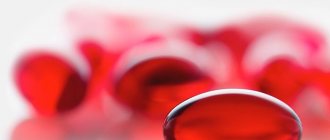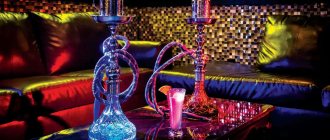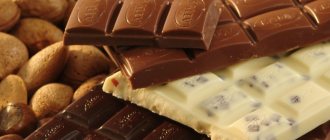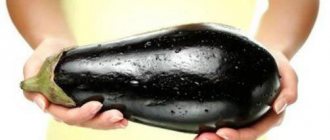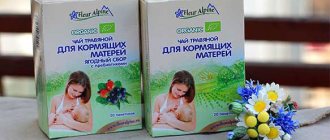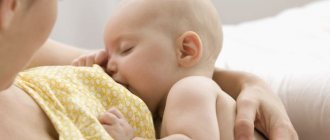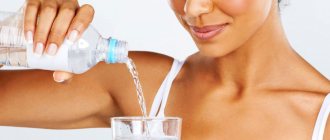Is there any benefit from the product?
Traditional chips are made from potatoes, which in themselves are a very healthy vegetable. When consumed, the body receives many essential components (vitamins C, groups B, PP, K, minerals: calcium, iron, magnesium, sodium, phosphorus, potassium, as well as organic acids and fiber). However, unfortunately, during the production of the snack in question, most of them are destroyed. Therefore, the benefit of chips lies only in quickly satisfying hunger and relieving stress in a difficult situation, when there is a desire to quickly “seize” the problem, the pleasure of your favorite taste, as well as ease of transportation.
What are the harms and possible health consequences?
Those who like to regularly crunch on chips are guaranteed to gain excess weight.
Nutritionists claim that chips cause quite serious damage to human health, which is several times greater than the imaginary benefits.
- The starch contained in potatoes is a fast carbohydrate that is broken down in the intestines into glucose, which, in turn, is converted into fat, the accumulation of which can easily and quickly make you gain weight.
- It is also known that foods containing starch, when quickly heated and fried, form a rather dangerous carcinogen - acrylamide. Scientists have found that this substance can cause cancer, especially in women (uterine or ovarian cancer).
- When making chips, the vegetable oils in which the potato slices are fried are heated to boiling point. At the same time, all the beneficial properties of the oils are lost, and they become trans fats, after consuming which the risk of developing cardiovascular diseases, cancer, diabetes and other ailments increases. In addition, in order to save money, unscrupulous manufacturers may violate technology and change frying oil untimely. As a result, the amount of carcinogens in it increases with each new batch.
- In the production of chips, a huge number of chemical additives are used that imitate various tastes (mushrooms, bacon, sour cream, and so on). Another component of the product is a taste enhancer (monosodium glutamate), which is addictive. And chemical flavors and preservatives can worsen the functioning of the digestive system, develop allergies, decrease immunity, and destroy tooth enamel. Therefore, if you regularly eat chips, you should not be surprised that acne appears on your face or body or that diarrhea suddenly appears. The body thus signals that it should not be poisoned with such a product.
- Almost all chips contain a large amount of salt. As you know, this substance retains fluid in the body and slows down metabolic processes. Therefore, you will not be able to lose excess weight by eating chips alone.
- High calorie snacks can also lead to the accumulation of excess weight and, as a result, obesity.
Why are chips harmful?
After processing the potatoes used in the preparation of this product, nothing useful remains. Thin slices are fried at high temperatures in boiling oil. Accordingly, all vitamins are destroyed without a trace. In addition, not every time chips are made from potatoes. Often the product is made from a mixture of potato or corn flour with various additives.
The content of carcinogens in chips exceeds the norm by 500 times! Many E-supplements are carcinogenic or enter into chemical reactions to form carcinogenic substances already in the body. Flavor and aroma enhancers, preservatives, dyes - a complete set. Even without these additives, fried chips contain large amounts of acrylamide, which is formed when frying in oil.
Acrylamide is a strong carcinogen. Many carcinogenic substances tend to accumulate in the body, in adipose tissue, and in bones. And it is almost impossible to remove such elements. They destroy body cells and negatively affect digestion, the nervous system and many internal organs.
Chips are a shocking dose of calories. There are 500 calories per 100 grams of product! Which leads to excess weight and obesity. In addition, consuming such foods containing transgenic fats increases the level of bad cholesterol in the body and disrupts metabolism. As a result, cholesterol plaques form in the vessels and diseases of the cardiovascular system.
The high salt content in the product impairs kidney function, causes swelling and increases blood pressure. This composition retains fluid in the body for a long time, as a result lactation worsens. Chips do not contain any vitamins, nutrients or elements. They do not saturate the body at all, so after some time after consumption, hunger returns, which provokes overeating.
Chips, like any fast food, are addictive. Such food will negatively affect lactation, the health of the nursing mother and the newborn. Such nutrition is prohibited during breastfeeding and pregnancy, for chronic diseases and for young children. Read more about the dangers of fast food here.
How often can it be used and for what diseases should it not be used?
Before you buy another pack of chips, you should think about how many health problems may arise from their excessive consumption. But you don’t have to completely give up snacks: if you allow yourself to eat one small pack once a month, then nothing bad will happen and irreversible processes in the body will not begin. The consequence of all the above ailments is regular daily consumption of chips.
In some cases, the product cannot be consumed even in minute doses. There are a number of ailments for which it is contraindicated:
- obesity;
- oncological diseases;
- diseases of the cardiovascular system;
- ailments of the gastrointestinal tract (ulcers, gastritis);
- liver diseases.
Is consumption allowed during pregnancy and breastfeeding?
A pregnant woman needs to ensure that her diet contains only natural products - this contributes to the development of a healthy child. Chips can hardly be called such, so it is better for expectant mothers to refrain from eating them both in the early and late stages. Otherwise, a pregnant woman risks gaining excess weight, developing allergies for herself and her unborn child, as well as exposing her body and her unborn baby to the risk of developing many of the diseases listed above.
Chips won't do you any good when breastfeeding either. With mother’s milk, not only useful components, but also harmful substances enter the baby’s body; all organs and systems of the baby continue to develop, and consuming the product will not have the best effect on these processes. If a nursing woman regularly eats chips, then perhaps her baby will suffer from allergies, dysbacteriosis, digestive diseases, obesity, and so on throughout his life. For the same reasons, chips should not be given to older children.
It is better not to give chips to a child in order to prevent the development of illnesses in the growing body.
How to make chips at home
If a nursing mother eats homemade chips rather than store-bought ones, the harm to the baby will be significantly reduced. At the same time, all possible spices are excluded from the recipe - they are also not safe for a child’s fragile digestive system. The amount of salt is also minimized. Peppered chips are also not suitable for a nursing mother, as they can not only affect milk supply, but also cause swelling.
In order for ready-made homemade chips to still turn out tasty, only the simplest spices are used for them. It is best to cook them in the oven or microwave, since fried foods are not allowed to be included in the diet of a nursing mother.
Thus, it is better for nursing women to avoid chips and other junk foods. In addition, among the necessary and healthy products, you can choose many goodies that will cheer you up, but will not cause any harm to your baby.
Which packs contain fewer substances harmful to the human body?
The technology for making chips is quite simple, and the product can be produced in “basement” conditions without observing basic sanitary standards and in violation of certain standards. Therefore, it is recommended to purchase snacks from well-known manufacturers whose reputation in the market is at a high level. These include Pringles, Lay's, Tyrrells and Taffel.
Photo gallery: Lay's, Pringles and other brands you can trust
Chips from this manufacturer are purchased much more often than other Pringles are considered one of the best chips at an affordable price Tyrrells chips are produced in the UK, but are also available in Russian stores of large retail chains High-quality and natural Taffel chips are made in Latvia
How to make chips yourself?
You can make safe and even healthy chips at home yourself. Ingredients for two servings:
- potatoes - 3-4 pieces;
- ground paprika - 2 pinches;
- table salt - 2 pinches;
- vegetable oil - 1 teaspoon.
- Peel the potatoes and cut into thin slices.
Thin plates can be obtained using a special knife - Place the slices on parchment paper, sprinkle with salt and paprika and drizzle with vegetable oil.
This is what chips should look like before they go in the microwave. - Place the baking sheet with raw chips in the microwave for 9 minutes using the “Grill” mode.
No chemical additives, just fun!
Recommendations
If the desire to eat chips is irresistible, you can cook them yourself, but even such a product should be consumed according to the tips below:
- You should not eat them until the baby reaches 4 months of age (provided there are no intestinal problems), otherwise this period will increase by another 2 months;
- At the first tasting, you are allowed to eat no more than 30g. chips in the morning after the main breakfast;
- if within 2 days the baby does not experience intestinal disturbances, you can gradually increase the portion;
- Daily consumption of chips should not exceed 100g, and it is also not recommended to eat them more than once every 2 weeks.
Since chips are a fatty and difficult to digest dish, you should strictly adhere to quantitative and time restrictions!
Can a nursing mother have homemade chips?
If a nursing mother really has an irresistible desire to eat chips, then you can try your own homemade chips. But even in this case, when including chips in the diet of a nursing woman, several restrictions and rules must be observed. The idea is about:
Eating any chips for a nursing mother is contraindicated for at least the first four months of the baby’s life. If the child has any problems with intestinal function, then this period will be even longer - at least up to six months.
For the first time, you can eat no more than 30 grams of chips. At the same time, you need to eat them after the main breakfast in the first half of the day. This will allow you to track possible manifestations of allergic reactions in your baby and take timely measures to overcome their consequences.
If for two days the child does not show any disturbances in the functioning of the intestines, then the portion can be gradually increased.
In any case, a nursing mother can eat chips no more than twice a month. In this case, a single portion should in no case exceed 100 grams.
Due to the fact that chips are not only a fatty, but also a very difficult to digest dish, when consuming them it is necessary to adhere to the designated time and quantity restrictions.
What can a nursing mother eat?
The newborn’s body is just adapting to new food and its digestive system is extremely unstable. During this time, it is important to adhere to a certain diet and try to avoid foods that cause colic and allergies.
The first 10 days of breastfeeding
The list of allowed foods that can be eaten before day 10 includes:
- baked and boiled apples;
- cereals – egg, buckwheat, oatmeal, rice, millet;
- vegetable and cereal soups;
- green tea, chamomile, with fennel, rose hip decoction;
- natural butter (maximum 15 g);
- vegetable oil;
- white meat (chicken).
Up to 3 months
After 10 days you can add to the menu:
- from fermented milk - you can eat cottage cheese, fermented baked milk, low-fat kefir, yogurt;
- fish (baked in the oven, steamed, boiled);
- eggs (no more than 1 piece per day);
- black or gray bread;
- boiled and baked potatoes;
- pasta (can be in small quantities);
- cheese (mild varieties);
- vegetables (boiled, steamed, stewed);
- spicy herbs (dill, lemon balm, parsley);
- dried fruits except raisins and dates;
- oatmeal, hard biscuits, biscuits, bagels, crackers.
After 3 months
From the third month, the list of allowed products increases.
You can start eating:
- borscht seasoned not with store-bought tomato paste, but with pasteurized tomatoes or tomato juice;
- vegetables, homemade fruits and berries in season, boiled or raw (peeled, membranes and seeds);
- walnuts and almonds, which increase the fat content of breast milk;
- quail, chicken, beef meat;
- compotes cooked without seeds, juices, fruit drinks;
- from fermented milk products you can eat sour cream, which has a positive effect on the fat content of milk;
- homemade jam (plum, apple, seedless cherry).
How to make banana chips
A safer alternative is baked banana chips, which are made from fresh fruit without the use of oil. This will be an excellent treat for a nursing mother, for people with diabetes and those on a diet. A big plus of this dish is that bananas rarely cause allergies.
Take ripe bananas, peel and cut into slices. Squeeze the juice from a fresh lemon and add the prepared circles. This will fill the dish with healthy vitamin C and prevent the chips from darkening during cooking. Line a baking tray with foil and place the circles evenly on top. Sprinkle with a little sea salt.
Bake the banana for one to three hours at 90 degrees. The longer you bake, the crispier the chips will be. Turn the pieces over halfway through the process. Chips are completely cooled before use. Store the product in a food-grade plastic bag with a zipper, or in a glass or plastic food container.
A nursing mother's diet should be healthier and more balanced. The menu should include boiled, baked or stewed dishes; try to avoid fried and junk foods. Read more about nutrition rules when breastfeeding by following the link.
Subscribe to our VKontakte group
What a woman should not eat while breastfeeding
The list of prohibited foods that should not be eaten during the postpartum period includes:
- whole milk;
- rich fatty broths;
- raisins (even in baked goods);
- You cannot drink instant coffee and black tea. They cause colic and disrupt sleep;
- raw, uncooked vegetables, including apples and bananas. You can’t eat even boiled cabbage;
- confectionery.
Prohibited foods (for 6 months of breastfeeding) include:
- Alcohol. Some young mothers believe that drinking a glass of beer or red wine is not at all dangerous, but on the contrary, the flow will increase and the baby, having eaten, will sleep peacefully. This cannot be done. Alcohol is 100% absorbed into the blood and ends up in milk. The baby's liver is underdeveloped and will not be able to neutralize the breakdown products of ethylene. Alcohol goes straight to the brain, central nervous system, kidneys, heart and gastrointestinal tract, causing irreparable harm. In addition, the baby will fall asleep before he is full.
- Chocolate, baked goods, condensed milk, candy with dyes, carbonated drinks, lemonade.
- Coffee (you can replace it with chicory or barley drink), milkshakes.
- Semi-finished products, canned food, marinades.
- Crackers, chips, nuts in bags with flavorings and salt - when breastfeeding, you cannot eat them even in small quantities.
- Hot spices that affect the taste of milk: horseradish, mustard, onion, garlic.
- Lard, fatty meat, sausages, balyk, ham, sausage.
- Fermented and sharp cheeses (brynza, Adyghe, Suluguni, smoked) are not allowed.
- Legumes: lentils, peas, beans will cause colic, bloating and diarrhea.
- Smoked, dried, salted fish and steamed meat.
- You cannot eat exotic fruits, excluding bananas.
- Radishes, radishes, raw and sauerkraut - weaken, cause colic and bloating.
- Dairy products should be limited. There is still an opinion that when breastfeeding a woman, she needs to consume a lot of dairy in order to increase the nutritional value of the milk. But this is not true. Whole milk products cause a baby to be allergic to lactose. When heated, milk proteins are not destroyed and remain dangerous for the baby, threatening him with intolerance in the future.
List of prohibited foods when breastfeeding
The list of dietary prohibitions looks quite impressive, but do not be discouraged: there are many more permitted foods. You can find out what a nursing woman can eat in this article.
Prohibited foods for a nursing mother are as follows:
Fatty meat, lard, smoked sausages, ham, etc.
Fatty foods cause constipation not only in the mother, but also in the child. In addition, the high calorie content of such food will quickly help you gain excess weight. Excess animal fat increases cholesterol.
Fish
Fish is very important in a mother’s diet as a source of easily digestible protein. But, due to the fact that this product is quite allergenic, it should be used carefully, no earlier than 3-4 months from the date of birth of the child. If an allergic reaction is detected, fish is completely excluded from the diet. This also includes a product such as fish caviar.
Instant semi-finished products
This group includes instant noodles, frozen dumplings, pasties, pancakes, cutlets, cabbage rolls, etc. This type of food should definitely not be eaten by nursing mothers, since the raw materials are often of the lowest quality, and the taste of the dish is improved by many chemical additives, for example, monosodium glutamate.
Any “chemistry” on a nursing woman’s menu can have a negative impact on the baby in the form of allergies and deterioration in health
Hot sauces and seasonings
This includes hot red pepper, chili sauce, mustard, ketchup, black pepper, curry, cinnamon, fresh onions, garlic, Caucasian and Indian cuisine. Spicy lovers will have to make do with fairly bland food for a while. Hot and spicy foods can significantly affect the taste of milk, making it unpleasant for the baby. The child will abandon the breast, and breastfeeding will be in jeopardy. In addition, such seasonings dilute the stool, and the baby may develop diarrhea.
5. Pickles, store-bought and home preserved
Any canned food is undesirable when breastfeeding. This also applies to home canning. Most recipes include a lot of salt and various seasonings, the excess of which can affect the taste of milk. In addition, when consuming canned food, there is always a risk of infection with the deadly botulism bacteria.
Chocolate and other sweets
During breastfeeding, it is better for nursing mothers to give up sweets, as sweets contribute to the appearance of colic and diathesis in the baby. Chocolate, especially dark chocolate, contains a significant dose of caffeine. Some babies are quite sensitive to this substance and may react to chocolate on their mother’s menu with sleep disturbances and increased excitability. If you really want something sweet, then you can indulge in some white chocolate, marshmallows or marshmallows. It is advisable to consume sweets once a day, 1.5 hours before feeding, and in very limited quantities.
Butter pastries
Many mothers love baking and often make it themselves. But during breastfeeding, such food is not healthy. Refined flour, high baking content, sweet or fatty filling in pies or buns make them dangerous products for a nursing mother. Such food will contribute to constipation in the mother, colic and diathesis in the child.
Precautionary rules
When breastfeeding, mothers should be careful about the foods they include in their diet. It's not just a list of approved foods that don't cause gas, anxiety, or colic in a newborn. In hot weather, it is necessary to ensure that food is clean, safe and fresh. It happens that foods included in the list of permitted foods, which the mother ate calmly during pregnancy and after childbirth, weaken and cause allergies in the baby. It can manifest itself not only as a rash, itching and irritation, but also as greenish stool, diaper rash, and crusts on the head. As a result, the baby worries, cries, and burps frequently and profusely. You should find out which product provokes such a reaction.
Always pay close attention to what you eat while breastfeeding
Sometimes identifying an allergenic product is quite difficult. One baby will calmly tolerate a red apple, while another will feel discomfort from boiled meat. Everything here is very individual and the mother herself must track down the product that is harmful and prohibited for the baby. Some babies sometimes simply do not digest some of the food included in the mother's menu. They experience bloating, gas, diarrhea, or constipation. Such products need to be calculated and temporarily excluded from the menu.
The mother's nutrition during breastfeeding, if the baby is absolutely healthy, should be natural and complete. If you need to increase the fat content of milk, you can include nuts, sour cream, cereal soups, and cream in your diet. A nursing woman needs to eat food enriched with vitamins and proteins, limiting the intake of carbohydrates and fats. Fruits, berries and vegetables should be included in the mother’s menu, but even here you need to carefully monitor their effect on the baby. For example, grapes, plums, apricots and pears are weak and can cause bloating and increased gas formation. You need to start introducing them in small slices, peeling them off.
Important! To track your baby’s reaction, you can keep a notebook. In the compiled list, enter when and what products were introduced. If the reaction is normal - there is no rash, colic, frequent regurgitation or anxiety, the product can be safely used. If the reaction is extremely negative, mark the date of its introduction, highlight it in red and try again after a few months.
Negative consequences
- Addiction to fatty foods and fast food;
- Deterioration of lactation due to the increased amount of salt in the product, which retains fluid in the body;
- Due to the accumulation of fluid, swelling appears;
- Disorders of the intestines and digestion, indigestion and heaviness in the abdomen, diarrhea, or, conversely, constipation;
- Severe poisoning, nausea and vomiting, dizziness, sleep disturbance and insomnia may occur;
- Severe allergies often occur, which most often manifest themselves in the form of rashes, itching and irritation on the skin. In addition, a sore throat and cough, runny nose and watery eyes may appear. In more severe cases, the airways and tissues swell, making it difficult to breathe;
- The appearance of excess weight and obesity;
- Increased levels of bad cholesterol and blood sugar, development of diabetes;
- Disruption of the heart and blood vessels, kidneys and liver, development of diseases of internal organs, cancer;
- Deterioration of the condition of teeth, hair and skin, the occurrence of caries.
Can a nursing mother eat chips?
Among the many products, there are groups recommended for consumption by a nursing mother, not recommended for one reason or another, and also prohibited. The last category includes chips.
Store-bought chips are a product that is strictly prohibited for nursing mothers. After all, they can cause very sad consequences for the baby, since they contain many components that are hazardous to health. We are talking about flavorings and dyes, as well as emulsifiers, various flavor enhancers and other industrial food chemicals. It is for this reason that after a nursing mother eats chips, the child may experience not only allergic reactions, but also disturbances in intestinal function, as well as more serious consequences, including Quincke's edema, which can result from poisoning or severe food allergies.
